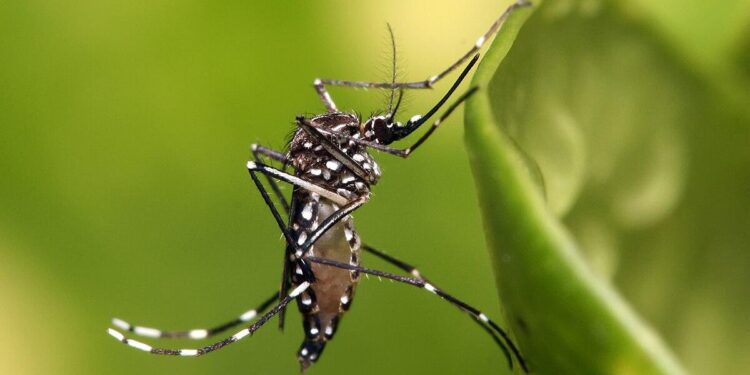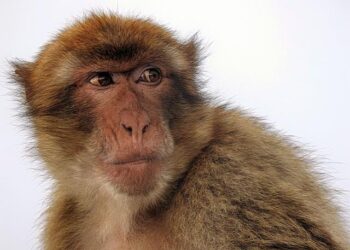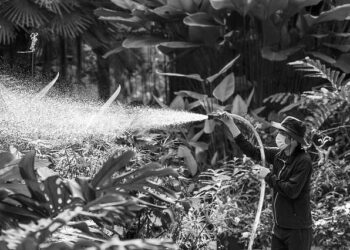World Mosquito Day: Eleven Mosquito Species Identified in Gibraltar
On World Mosquito Day, the Gibraltar Broadcasting Corporation reports a significant development in local entomology: researchers have identified eleven distinct mosquito species within Gibraltar’s unique environment. This discovery sheds new light on the territory’s biodiversity and raises important considerations for public health and mosquito control efforts. As World Mosquito Day highlights the global impact of these tiny yet formidable insects, Gibraltar’s findings underscore the ongoing need for vigilance and study in managing mosquito-borne risks.
World Mosquito Day shines spotlight on Gibraltar’s diverse mosquito population
In a recent entomological survey, researchers have documented 11 distinct mosquito species thriving within Gibraltar’s unique Mediterranean environment. This remarkable diversity highlights the region’s complex ecosystem, where urban settings meet natural habitats, creating ideal breeding grounds for various mosquito populations. Among the species identified are Aedes albopictus and Culex pipiens, both known for their roles in transmitting diseases globally. Local health authorities emphasize the importance of continuous monitoring as part of ongoing public health initiatives, especially during the warmer months when mosquito activity peaks.
The comprehensive study underlines several key findings about Gibraltar’s mosquito fauna:
- Species variety linked to diverse ecological zones including urban, coastal, and green spaces.
- Seasonal fluctuations affecting mosquito population density and breeding cycles.
- Potential disease vectors necessitating targeted control strategies.
The following table summarizes the mosquito species recorded, alongside their common breeding habitats within Gibraltar:
| Species | Common Habitat | Vector Status |
|---|---|---|
| Aedes albopictus | Urban containers, gardens | Potential vector |
| Culex pipiens | Stagnant water, drains | Known vector |
| Anopheles labranchiae | Marshy areas | Malaria vector (historic) |
| Culiseta longiareolata | Natural pools | Non-vector |
Health officials emphasize surveillance and control measures to combat mosquito-borne diseases
Authorities in Gibraltar are stepping up vector surveillance and control efforts following the identification of 11 different mosquito species within the territory. These initiatives focus on routine monitoring of mosquito populations through strategically placed traps and larval surveys to detect potential disease carriers early. Health officials emphasize the importance of community cooperation in eliminating stagnant water sources, which serve as breeding grounds for mosquitoes, to reduce the risk of outbreaks of diseases such as dengue, chikungunya, and West Nile virus.
Advanced control measures are being deployed to complement surveillance activities, including targeted fogging operations and the introduction of environmentally-friendly larvicides in key habitats. The public is urged to use personal protective measures like insect repellents and window screens, especially during peak mosquito activity periods. Below is a summary of key control strategies currently in place:
- Regular trap inspections and species identification
- Removal of standing water from urban and suburban areas
- Community education campaigns on mosquito prevention
- Deployment of larvicides and adulticides in high-risk zones
- Collaboration with regional health bodies for real-time data sharing
| Measure | Purpose | Frequency |
|---|---|---|
| Trap Monitoring | Track mosquito species & population | Weekly |
| Larvicide Application | Prevent larval development | Monthly |
| Fogging | Reduce adult mosquito numbers | As needed |
| Public Awareness | Engage community in prevention | Ongoing |
Experts recommend community participation in reducing breeding sites and preventing outbreaks
To curb the proliferation of mosquito breeding sites and prevent the spread of mosquito-borne diseases, experts emphasize that active community involvement is crucial. Residents are urged to regularly inspect their surroundings, eliminate stagnant water from containers such as flower pots, discarded tires, and gutters, and maintain clean outdoor areas. Simple measures taken collectively can significantly reduce mosquito populations and lower the risk of outbreaks in Gibraltar.
The importance of community action extends beyond private properties. Local councils encourage neighborhoods to organize clean-up campaigns and educational workshops to raise awareness about mosquito control. The table below highlights key preventative actions recommended by health authorities:
| Preventative Action | Description |
|---|---|
| Remove Standing Water | Empty containers, bird baths, and clogged drains weekly |
| Maintain Gardens | Trim bushes and mow lawns to reduce resting spots |
| Use Mosquito Screens | Install screens on windows and doors |
| Report Breeding Sites | Notify authorities about large pools of water or illegal dumping |
To Conclude
As World Mosquito Day draws attention to the global impact of these tiny but formidable insects, Gibraltar’s identification of 11 distinct mosquito species highlights the importance of ongoing surveillance and public awareness in the region. With mosquito-borne diseases remaining a significant health concern worldwide, local authorities continue to emphasize preventive measures and research efforts to safeguard the community. Gibraltar Broadcasting Corporation will keep reporting on developments in this area, underscoring the critical role of science and public cooperation in managing mosquito populations.
















